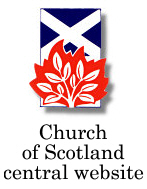Starting a church is a deeply fulfilling mission, as it provides a space for worship, fellowship, and community service. Beyond the spiritual aspects, establishing a church also requires careful planning and understanding of legal and administrative processes. These considerations ensure that your church not only thrives in its faith but also complies with necessary regulations and effectively serves its community.
The Vision and Mission of Your Church
Before delving into legal structures, it’s essential to define the vision and mission of your church. This will guide your ministry, programs, and community engagement. Whether your church focuses on youth ministry, outreach to the underserved, or creating a welcoming space for spiritual growth, a clear mission will help your congregation grow in unity and purpose.
Your church’s mission will also affect decisions about the type of community services or programs you wish to offer. Will you provide food pantries, housing assistance, or outreach to local schools? Defining your goals will help you attract like-minded individuals and align your efforts with the broader community needs.
Establishing a Legal Structure for Your Church
A church, like any organization, needs to be legally recognized to function properly. While churches are inherently non-profit entities, they still must follow certain legal procedures to operate within the boundaries of the law. The first step is often to form a legal entity, usually by establishing a nonprofit organization.
- Incorporation as a Nonprofit
Incorporating your church as a nonprofit organization provides legal protections for your leaders and members. As a nonprofit, your church can apply for 501(c)(3) tax-exempt status, which allows donations to be tax-deductible for your members and supporters. Incorporating also provides a formal structure for the church’s activities and clarifies the rules for governance, leadership, and decision-making. - Compliance with State and Federal Regulations
In addition to federal nonprofit status, churches must comply with state and local laws. In Nebraska, for example, churches must adhere to specific nebraska publication requirements when they establish their nonprofit status. These requirements involve publishing notices in local newspapers about your nonprofit’s formation, which is part of the process of registering your organization with the state. These requirements vary by state, but in general, such notices help ensure transparency and public awareness about the church’s formation.
Key Legal Documents for Your Church
Along with incorporation, there are other key documents that your church will need to establish:
- Bylaws
Bylaws serve as the governing document for your church. These should outline how the church will be operated, including how leadership is selected, how decisions are made, and how meetings are conducted. Bylaws help create transparency and consistency in church governance and are often required by law for nonprofit organizations. - Articles of Incorporation
The Articles of Incorporation is the formal document filed with the state to legally recognize your church as a nonprofit entity. This document generally includes your church’s name, mission, address, and the names of the founding members. - IRS Form 1023
To obtain 501(c)(3) status and qualify for tax-exempt benefits, your church must submit IRS Form 1023. This form includes detailed information about your church’s structure, governance, and planned activities.
Fundraising and Managing Church Finances
Managing finances is another critical part of running a church. As a nonprofit entity, your church will rely heavily on donations, tithes, and offerings to fund its operations. Creating a transparent financial system is crucial for building trust within your congregation and maintaining compliance with tax laws.
- Tithes and Donations
The primary source of income for most churches comes from tithes (regular giving by members) and voluntary donations. Churches often encourage tithing as a way to support the mission and ministry of the church. Keeping track of donations and providing regular giving statements is important for both church leaders and members. - Budgeting and Financial Oversight
As a nonprofit, your church must be transparent about its finances. Creating a budget and maintaining accurate financial records is crucial. Churches often create an annual budget that outlines expenses such as salaries, facility maintenance, community outreach programs, and operational costs.
Community Outreach and Engagement
A key purpose of your church is to serve your community. Whether through mission trips, community events, or local service projects, your church’s outreach will reflect its mission and values. To grow your congregation, it’s essential to engage with your local community. Host events, offer support programs, and encourage fellowship among members to create a welcoming, inclusive atmosphere.
As your church grows, expanding your outreach programs or collaborating with other organizations will help foster greater community involvement and establish your church as a vital part of the local landscape.
Maintaining Legal Compliance
Finally, it’s important to stay up to date with legal and regulatory changes that affect your church. Churches are often exempt from certain taxes, but they must still comply with local zoning laws, building codes, and health regulations. Periodic audits or reviews of your church’s operations will ensure that your nonprofit status remains intact and that your leadership is acting within the bounds of the law.

